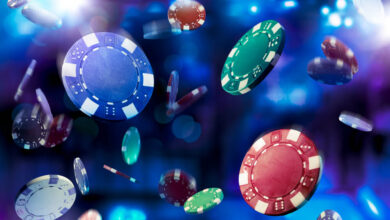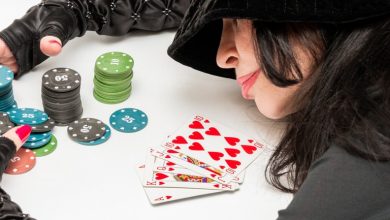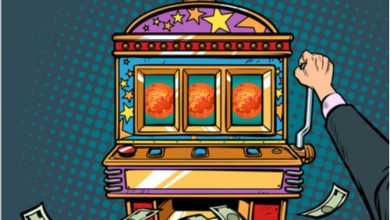A Complete History of Slot Machines
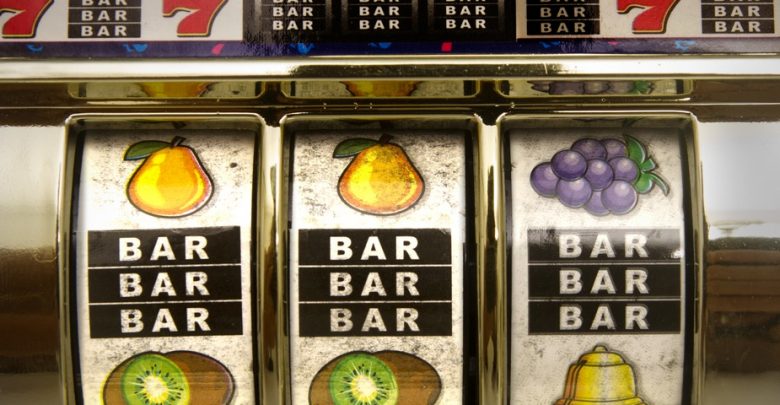
Slots machines, fruit machines, one-armed-bandits, whatever you want to call them – are some of the most popular games ever created.
From the very first slot machine, invented in the 1800s, to the cutting edge virtual reality slots of the future, the game has been through thick and thin in its 200-year reign throughout casinos all over the globe.
But their very existence is a tale of unlikely birthplaces, criminal activity and mass popularity in their relatively short life – it’s one for the ages and I’d be happy to write the Hollywood script.
From the pubs throughout the UK (where they’re known as fruit machines) to the most prestigious casino floors on the Las Vegas strip, you’ll find the slots just about everywhere you look.
But it’s not exactly difficult, not with telltale sounds, flashing lights and stereotypical punters all flooding the casino floor and sticking out like a sore thumb on the gaming floor.
But how did the slot machine come about and maybe most importantly, what does the future hold for our flashy friends?
We took a look at the history of the slot machine to investigate:
What exactly are slot machines?
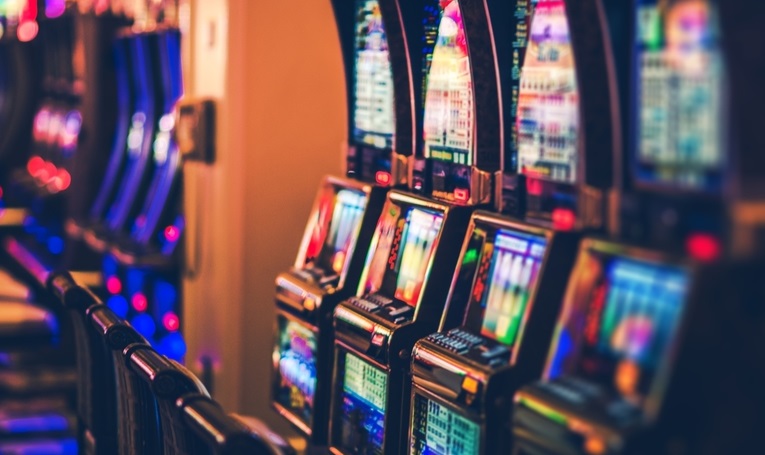
To start things off in the right direction, we’re going to need to get down to the basics and ask the question – what exactly are slot machines?
Well, I’m glad you asked. Slot machines are among the, if not the single most popular gambling machine ever to grace the face of the Earth
They range in size, wager, jackpot, and where they exist (digital or physical), but the term has been a little blurred in recent history.
Traditionally, a slot machine will contain a series of images on a screen or rolling cylinder (called a reel) that move once play is selected.
Play is usually begun with the pull of a lever, hence the name one-armed-bandit, but can be a button (if you’re playing on a fruit machine) or click-based (if you’re playing online).
The game aims to match different combinations of the symbols on the reels, commonly represented as fruit or bars.
The number of reels can vary from machine to machine, with the most common denominations of 3 and 5, with a variety of different themes and bonuses.
When playing online slots, the number of bets per line can be altered for larger payouts, however, this will come with a higher cost per spin of the reels.
Although it is possible to play slots online for free, real money games tend to be the most exciting, but the games haven’t always been designed with gambling as the main focus…
Before the slot machine

We start our story in the 1880s with a world completely free of slot machines, but coin-operated gambling devices were slowly starting to catch on in the US.
Machines were heavily novelty-based rather than solely designed for gambling with a variety of functions and themes – including racing toy horses – that would provide seconds of entertainment for a small fee.
Machines were set on the bars of saloons (or similar establishments) that attracted wagering between patrons.
The proprietor would usually pay off customers with drinks, cigars, or occasionally, trade checks that could be used in exchange for refreshments at a later date.
However, by 1888, machines that dispensed coins were becoming available in which inserted coins would fall onto an internal balance scale.
Coins that tip the scale led to the award of coins to the player, similar to coin-pushing machines that we still see today littered around arcades.
But the novelty soon wears off and there are only so many times you can lose a game to a pair of scales and with interest diminishing around the existing gambling machines, a savior was needed to take the gambling game by storm.
The very first slot machines

The hero in our story comes the American inventor, but Bavarian-born inventor of Charles August Fey – a mechanic at the time in San Francisco.
Fey had a knack for all things mechanical and built his very first coin-operated gambling machine in 1894 – but he wasn’t yet hovering over the money. In 1895 Fey gave the gambling machine another go and created the famous ‘4-11-44’ in the basement of his home.
This was the turning point for our American protagonist and following the huge success of the machine in a local saloon, Fey left his job to pursue the creation of gambling machines full-time.
In 1898, 3-years following his prized invention, Fey, now running his own factory to produce more units, created his most valuable machine yet and the very first three-reel slot machine (with automatic cash payouts).
‘The Card Bell’, as it was later named, used a handle to start off the reels in motion and playing cards could be seen across the reels with the goal of creating poker hands for cash prizes.
But Fey wasn’t done yet, the newly successful businessman launched ‘The Liberty Bell’ in 1899, using horseshoes, bells, and play card suit marks on the reels rather than the poker hand seen previously.
The machine gets its name from the top payout reel alignment of the three bells, but despite its popularity, only 4 remain due to the 1906 San Francisco earthquake.
The two slot machines revolutionized the gambling machine and wrote the book for the slots that we still use today.
‘The Liberty Bell’, in particular, proved exceptionally popular and as a result, it wasn’t long before the machines had been copied by competitors.
We’re sure that Fey wasn’t best pleased, but they say imitation is the best form of flattery – right?
Gambling prohibition and the birth of the bar
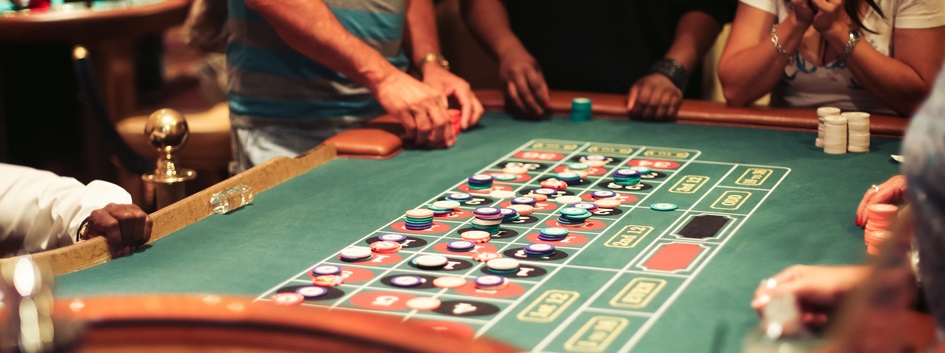
Within San Francisco, the affectionate home of the slot machine, there was a total of 3,300 throughout the city at the time of the prohibition in 1909 – bad news for Fey.
But with a sharpness between the ears, Fey opted to circumvent the law with the creation of slot machines without the coin slot expected to allow for play.
Instead, purchase and payout (drinks and cigars mostly) occurred across saloon counters as opposed to the gambling machines that we know and love.
The Industry Novelty Company, a company standing as Fey’s competition, were the first to use the traditional fruit symbols (giving fruit machines their name) in another effort to loophole the law.
The company named their machines ‘chewing gum dispensers’, and used different flavors of chewing gum to represent different suits of cards.
To confuse authorities and prevent the rumbling of the business, the company actually built some chewing gum dispensers, further elevating the illusion.
The idea was quickly copied in 1910 by the Mills Novelty Company, an organization that used the picture of chewing gum packs onto their reels to add a layer of authenticity.
The gum pack symbol soon evolved and the ‘BAR’ symbol was born – who knew it has such deep roots?
The popularity of the slot machine developed throughout the 1920s and 1930s, but with the distribution predominantly organized crime based, the increase in the legislation of their sale and transportation was witnessed.
Due to the state system in the US, re-legalization of slots was seen between the 1940s and 1970s, slowing down the production of slots, but not ceasing them entirely.
The introduction of electronic slots
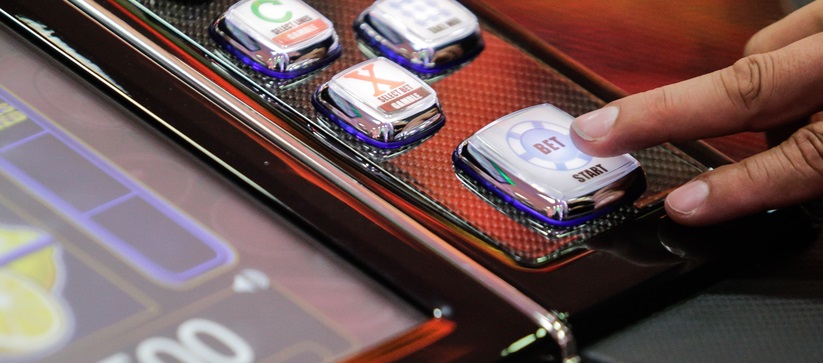
The introduction of the electromechanical slot machines in the 1950s allowed for plenty of variation within the machine payouts with the option of 3 and 5 coin multipliers.
Video slots were introduced in the fabulous Las Vegas in 1975, allowing further development for the possibilities that we see in the slot machine.
The actions of pulling the handle and watching reels fall into a line are very much still what we see, derived from that first slot from Fey in the 1800s – but the way it evolved has changed dramatically.
With jangling coins, carefully selected sounds, and the atmosphere that surrounds the carousel, we’re sure the small-time mechanic would be proud to see what his achievements have developed into.
1986 saw the linking of different slots to build what is commonly referred to as the ‘super jackpot’. The coins collected continue to build until extremely large values are available to win, including the $39.7 million jackpot on Megabucks at Excalibur in 2003 and the $8.9 million win at the Fremont Hotel.
The gambling laws were slowly relaxed by the end of the 20th century we have seen the permission for legal gambling on Native American reservations.
This led to the expansion of revenue-generating options in countless US states alongside the boom of electronic gaming machines.
Modern slot machines have evolved from the basic internals found in those from the 70s and 80s, featuring solid-state electronics set to the desired frequency of payout, as set by the casino.
It’s for this reason that we’re seeing the house advantage vary massively, between 1 and 50 percent, depending on both legal and competition.
By 2010, were more than 830,000 electronic gaming machines operating in the US with the capital generated rising from 40 percent in the 1970s to 70 percent in 2010.
A huge number of machines operating with huge margins.
As of current, there are over 900,000 slot machines and video lottery terminals littered throughout the US.
The dawn of the online slot machines
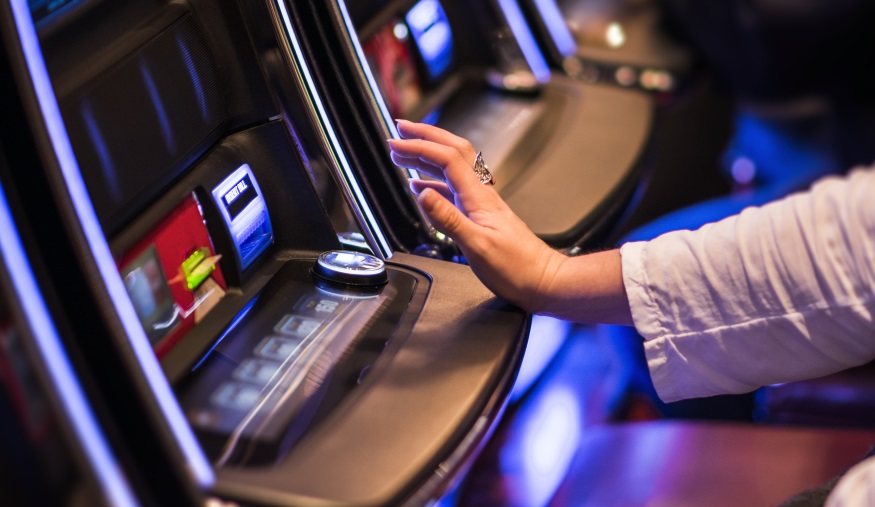
The dawn of online slot machines became a threat to land-based casinos in 1994 with the opening of the very first online casino.
Since then, their worries have proven sensible with more players than ever signing up and playing slots, video poker, and plenty of other casino games from the comfort of their own homes.
But it’s not just the desktops and laptops capable of playing online entertainment, with the rapid rise of the smartphone, it’s possible to play slots online from anywhere in the world – providing there’s an internet connection.
It’s a scary time with so much temptation at the fingertips and it’s something that’s starting to be picked up on throughout the world.
The clamping-down on casino regulations is something we’re seeing in plenty of areas in the UK with the limitation of the maximum bet on gambling machines (£100 to £2) and the restrictions in place in Germany with the remodeling of the law around gaming.
However, it’s not all doom and gloom, not when we start to look towards the East with the Chinese region of Macau and the country of Japan.
The former boasts plenty of multi-billion-dollar new build casinos with a focus on gaming for tourism purposes. Japan is following suit and with the recent legalization of the casino, we’re expecting huge builds in the mid-2020s.
It may be a little uncertain, but with some of the most advanced countries in the world opting to include gambling as a form of revenue for the government via tourism – we’re hoping everything’s going to be okay.
The future of the slot machine

One area that’s no longer concerned with the history and the heritage of the slot machine is its future endeavors and developments to keep appealing to new and existing audiences.
Perhaps the most interesting development comes with the creation of virtual reality (VR) online slot machines.
With the ever-decreasing VR headset cost, it won’t be long before we’re playing all kinds of games by interacting with our surroundings and when it comes to gambling, slots are at the forefront of development.
Providing you’ve got the equipment, you’re free to play VR slots straight away with a couple of casinos opting in for the futuristic gameplay.
It may be basic in its current state, but just wait a few more years and it’s going to be something special, mark my words.
The development of video-game-like graphics is of particular interest in this area and the possibilities surrounding the technology are seemingly endless.
Similarly, with Japan as the tech capital of the world, the advancements in terms of games is predicted to skyrocket once more – it’s going to be an exciting time for the world of slots.
But what do you think? Futuristic, limitless play, or tightened regulations that restrict casinos (both online and land-based) from moving freely?




